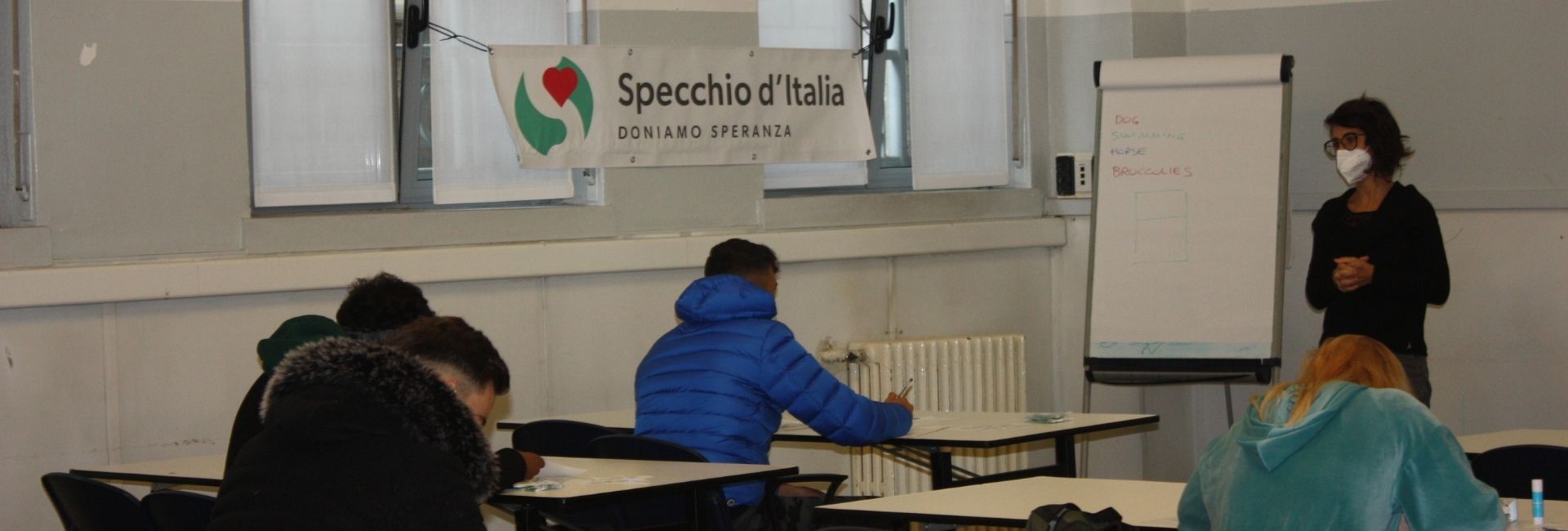Specchio d’Italia inaugurated the “Scuola Bottega” project in Milan this morning. This is the first that the new foundation, born from Specchio dei tempi, is building in the Lombard capital thanks to the important contribution of a Milanese donor.
“Scuola Bottega” is a historical school-work course for the recovery of the middle school certificate, dedicated to girls and boys at high risk of leaving school early. Launched sixteen years ago by the Cooperativa La Strada, it aims to combat school abandonment when students are one step away from qualifying from middle school. In close collaboration with the staff of “La Strada”, Specchio d’Italia is now supporting and developing this initiative, to give hope to the most fragile young people.
The educational course, also capable of offering experiences of approach to the world of work, lasts one school year (October-June). The pupils, indicated by the schools and subsequently selected, remain formally enrolled in the schools of origin but attend the premises of the cooperative throughout the year. The programme involves 15 children between the ages of 14 and 17. The indications of 14/15-year-olds, still in compulsory schooling, come only from middle schools (lower secondary schools) through the definition of an individualized project that provides for the maintenance of enrolment and the examination of the middle school certificate at the school of origin which maintains ownership of the school and training course, ensuring monitoring and conclusive evaluation. The signalling of 16/17-year-olds comes from various institutions in the area: schools, host communities in the Milan area (often dealing with unaccompanied foreign minors) and other bodies that intercept children in the educational and welfare fields.
As compulsory schooling for the children of this group has lapsed, they are enrolled at the Permanent Territorial Centre of the Area and will have the opportunity to take the Middle School Certificate exam through a specific agreement. The class group is therefore not homogeneous in terms of age and personal paths, but shares the same strong motivations and the final goal: the individual stories and different basic skills flow into common experiences, in everyday life that is always oriented towards sharing and respect, in an active learning way that everyone acquires starting from their own personal experience. In this continuous “dialogue” between the dimension of the class group and the individual path (which each person checks at their home school), the tutor, the teachers, even the employers that are met in the Internships are the adult figures able to teach but also guide the children towards the goal.

